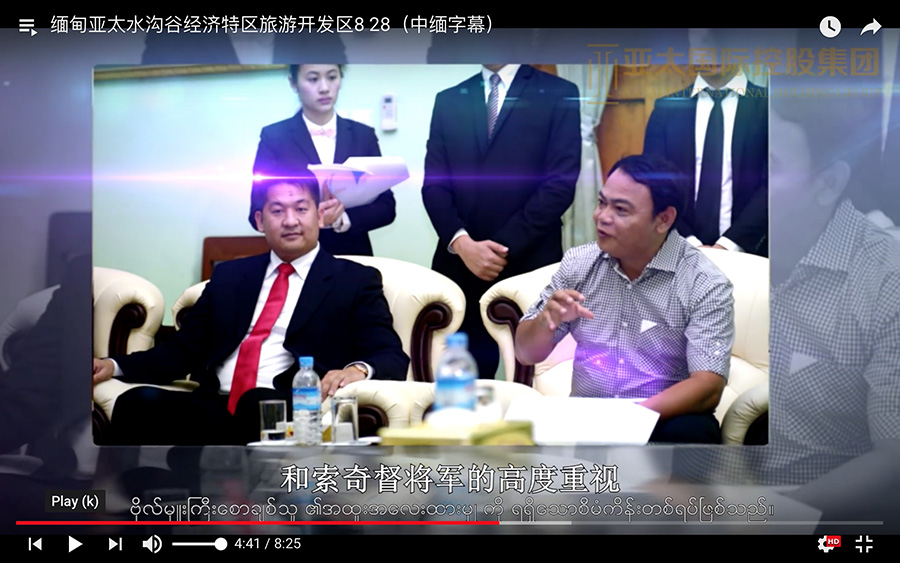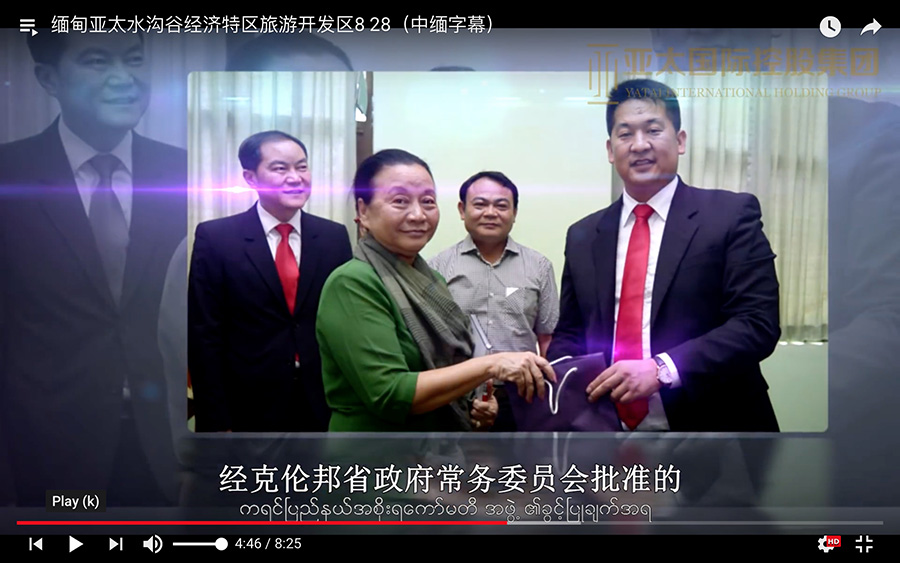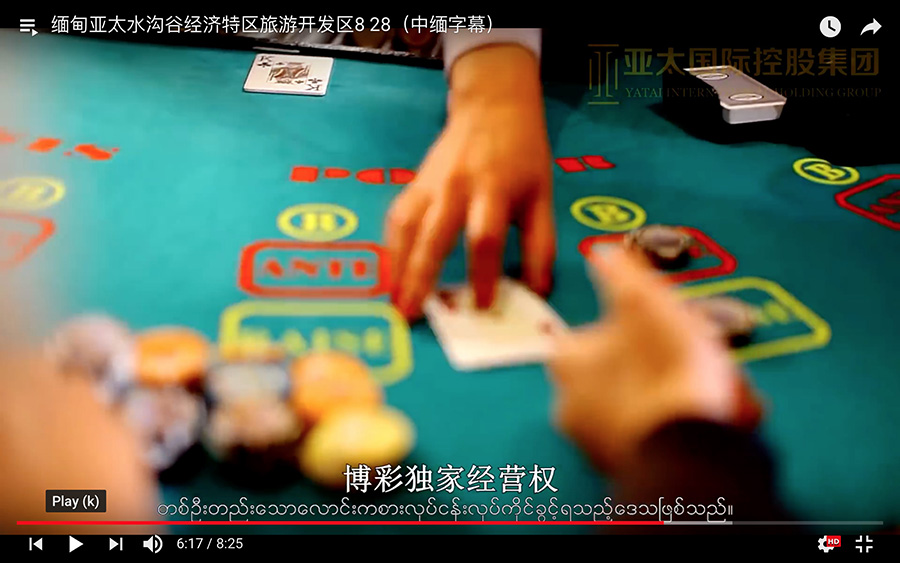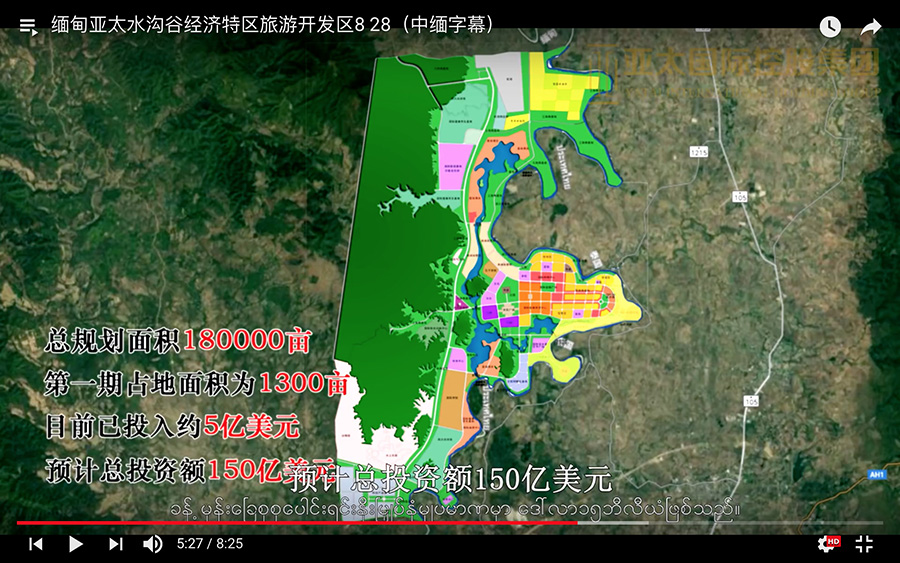YANGON — A Chinese company behind an urban development project near the Thai border in Karen State says it is planning to build on a swath of land under the control of a local armed group many times the size it was granted by the government.
The Myanmar Investment Commission (MIC) approved 25.5 acres of land for the Shwe Kokko urban development project in Myawaddy Township last year. But the Myanmar Yatai International Holding Group, the local subsidiary of China’s Jilin Yatai Group, says the first phase alone will cover 214 acres.
The Irrawaddy has reported on the project and the company’s claims before, but recent media coverage has reignited public confusion about what was approved and concern over what is actually happening on the ground.

Daw Mya Sanda, a director of Myanmar’s Directorate of Investment and Company Administration (DICA), told The Irrawaddy that the agency approved the project at $22.5 million in July — with the endorsement of the Karen State government — for the construction of 59 villas within three years, and nothing more.
Being valued in the millions, it dwarfs the 5 million kyats ($3,295) cap on projects state governments are allowed to approve on their own, which is why DICA got involved.

In late 2017, Karen State Chief Minister Daw Nang Khin Htwe Myint told The Irrawaddy that the government granted Col. Saw Chit Thu, the commander of a local border guard force (BGF), about 60 acres in area under the armed group’s control for commercial development.
A video posted to YouTube in August 2017 bearing Yatai International’s logo and soliciting investors to the project, meanwhile, puts the price tag at $15 billion for a “small international city” replete with villas, casinos, tourist attractions and an international airport. It says it is aiming for an initial investment of $500 million and ultimately plans to develop a total 29,652.6 acres.
Daw Mya Sanda said it was the MIC’s job to monitor such projects for compliance.

Yatai International’s directors include a Myanmar national, a Cambodian and two Malaysians. The Myanmar director could not be reached for comment.
According to state lawmakers representing Myawaddy, Col. Saw Chit Thu was granted 68 acres to be precise, and that the area includes 16 villages inside the Pu Lae Pu Village Tract. They said Shwe Kokko was one of those villages, and that the colonel wanted to scale it up into its own township.
State lawmakers U Thant Zin Aung and U Aik Kyan Kham were amongst those who inspected the proposed project area before it was approved, but they said they have not been able to monitor developments since.
Residents of the project area have raised concerns about the influx of Chinese workers with young families.

“We heard later on that many Chinese have entered; we don’t know how Col. Chit Thu is dealing with them.” said U Aik Kyan Kham.
U Thant Zin Aung urged law enforcement authorities and immigration officials to ensure the workers and their families are in Myanmar legally.
“We are very worried about them and we urge the immigration officials to tackle the problem seriously and to apply the rules,” he said.
U Aik Kyan Kham said the government agreed to the project as originally proposed hoping that allowing the armed groups in the area some scope to do business would foster peace.
Karen State hosts at least four ethnic Karen armed groups: the Karen National Union (KNU) and its splinters; the Democratic Karen Benevolent Army (DKBA); the Democratic Karen Buddhist Army (DKBA); and Col. Chit Thu’s BGF, which is under the authority of the Myanmar military.
Over nearly 70 years of civil war in Karen State, the government and armed groups have regularly competed for business opportunities. While the armed groups operate some of their businesses independently, others are run with approval from either the state or national government.
Projects that proceed without the government’s permission can face consequences.
The Shwe Mya Sandi housing project, about 48 km from the Shwe Kokko development site, was not approved by the state. It took over 300 acres including farms, forest reserve, municipal land and part of a designated trade zone. Reacting to complaints from the owners, U Thant Zin Aung said, the government has repeatedly told the developer to stop and so far torn down 757 of the 3,209 houses it has built there.
He said that during a meeting at Saturday with locals, including those affected by the Shwe Mya Sandi housing project, the chief minister insisted that lawbreakers would be brought to justice.
“The chief minister has made it clear that if anyone is involved in the project without government permission, action would be taken against them,” he said.

















